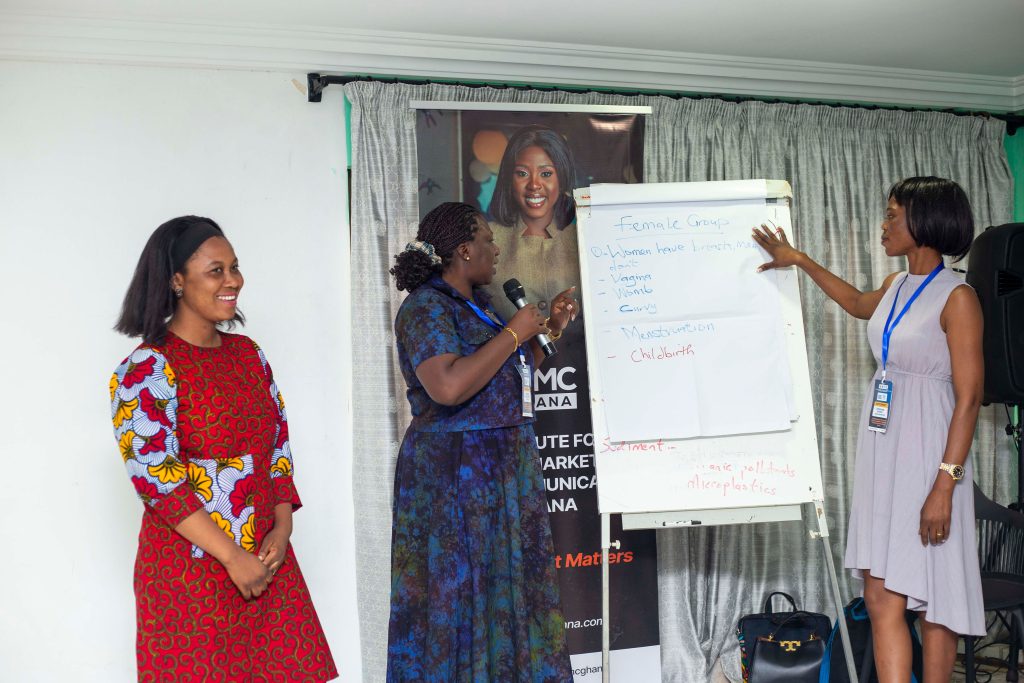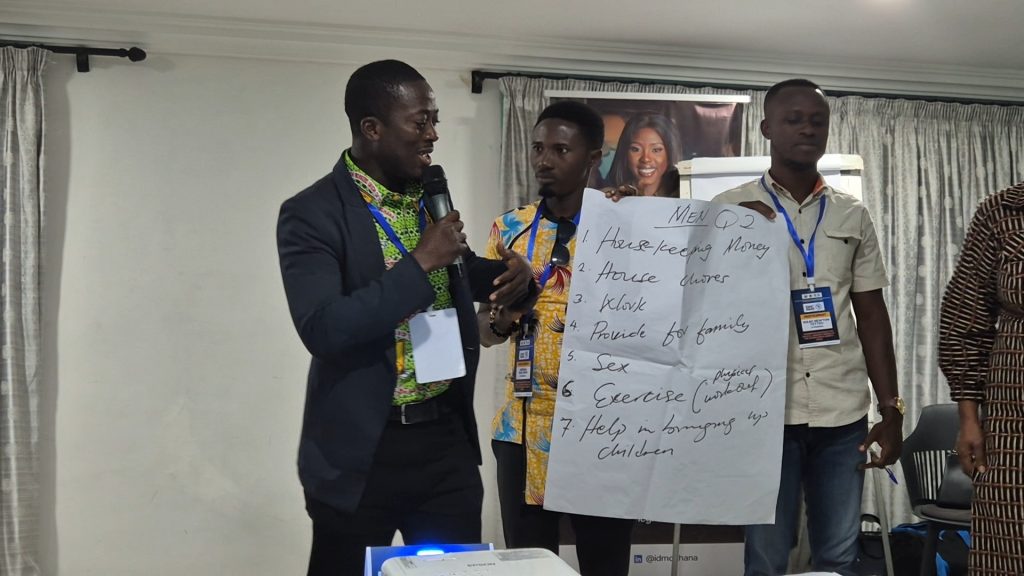By Laudia Sawer
Sogakope (V/R), Sept. 19, GNA – Ms Melody M. Darkey, a gender expert and National Programmes Coordinator for Women in Law and Development in Africa (WILDAF), has cautioned journalists against reinforcing gender stereotypes.
Ms Darkey said the media reinforce gender stereotypes through their reportage and other programmes, which shape the narrative and set the agenda in gender stereotypes.
She said this when speaking on ‘Gender Reporting’ at a four-day Covid-19 Skills Development and Productivity Enhancement Project (PSDPEP) training for Ghana News Agency (GNA) staff on advocacy reporting in health communication, youth entrepreneurship, Micro, Small, and Medium Enterprises (MSMEs) promotion, gender, and climate change issues at Sogakope.
The training is funded by the African Development Bank (AfDB) through the Social Investment Fund (SIF) and is being implemented by the Institute for Digital Marketing and Communication Ghana (IDMC Ghana).
She urged journalists to be intentional in using their platforms to educate people against such stereotypes instead of reinforcing them.

She noted that issues of gender and stereotyping did not only affect women but rather all sexes, describing them as oversimplified notions about women and men’s capabilities, levels of analysis, and strength, among others.
Gender stereotypes, she added, produced prejudiced beliefs about both sexes and the opportunities they could access, as well as create differences and determine relations.
Ms Darkey indicated that gender norms, which must also be checked, border on ideas about how women and men were supposed to act and set standards that were to conform and were internalised early in life.
Touching on the mix-up between gender and sex, she explained that sex was the biological makeup of individuals, their genetic and physiological characteristics, as well as the innate differences between men and women.
She added that sex was attained at conception, universal, and could hardly be altered, noting that, on the other hand, gender is the socially constructed definition of women and men.
The gender expert said gender issues were very important because they influence gender roles, needs, opportunities, and jobs; relations with others; identity; and access to and control of resources.

She stated that factors that influence gender roles include culture, political environment, class, ethnicity, religion, geography, economic situations, stereotypes, and norms.
Ms. Darkey urged the media to advocate for the redistribution of gender roles, stating, for instance, that instead of making girls stay at home, both boys and girls can go to school, men and women can both care for and discipline children, and both sexes can cook, do the house chores, own properties, and take care of the bills at home.
She said doing so would help build a better society, explaining that while house chores are time-consuming, leading to women getting tired and stressed, roles ascribed to men also put pressure on them.
GNA